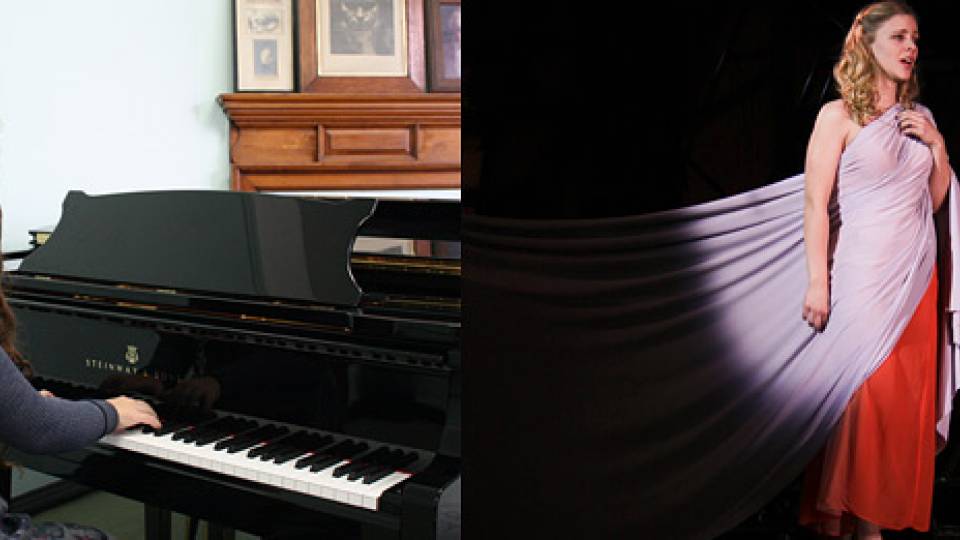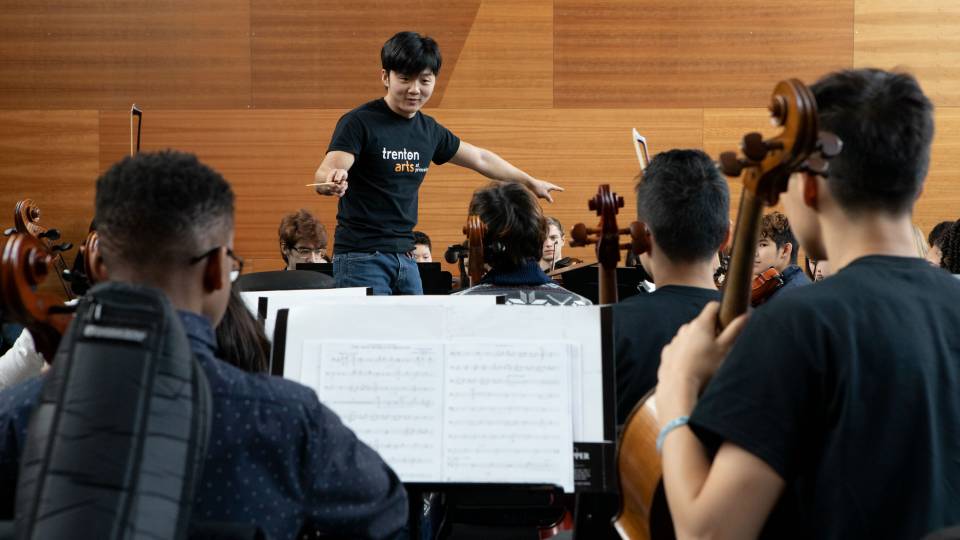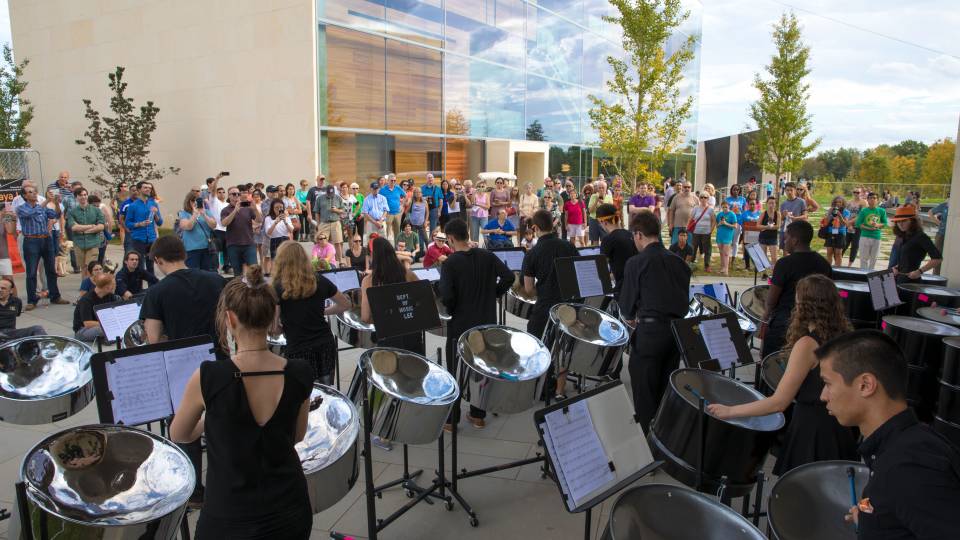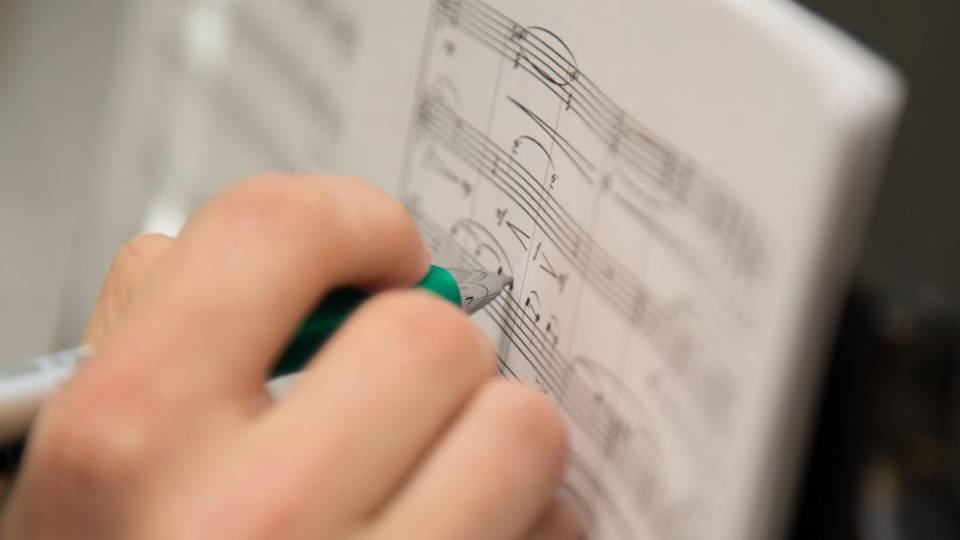Most of the work in developing artistic skill happens behind the scenes, alone in a practice room or with a teacher in a teaching studio. But Princeton University offers students and the community another chance to learn by inviting well-known professional performers and artists to become teachers in a communal setting, through a variety of master class offerings on campus.
In a master class, students in any given artistic endeavor (in the case of music, an instrument or voice) are selected to participate in a forum where they perform a piece in front of an audience and a visiting artist, as seen in the video above. The artist then works with the student through parts of the piece to help them improve technique and performance.
The visitor is usually an established and respected artist in their field and “will tell the students a lot of the same stuff that their regular teachers have been telling them, but they’ll say it in a different way … and it has a different avenue in and it makes a greater impact,” said Michael Pratt(Link is external), director of the Program in Musical Performance and conductor of the Princeton University Orchestra(Link is external).
As Samuel Matzner, a violist who graduated in 2017 with a major in philosophy(Link is external) with certificates in German(Link is external) and musical performance(Link is external), said: “That extra 1 percent, I think, is inspiration, and it’s so important because you can slave away in a practice room … endlessly, but if someone isn’t there to tell you how to improve and where to improve, you just won’t get anything done. So, I think master classes are really essential.”
Recent master classes have included Metropolitan Opera singers Jamie Barton, Anthony Roth Costanzo (a 2004 alumnus) and Joyce DiDonato; renowned members of ensembles such as the Hagen String Quartet, the Takács Quartet and the Calidore String Quartet; and master pianists Richard Goode, Daniil Trifonov and Paul Lewis, among others.
Master classes are organized through a variety of groups at Princeton. “Performers as Teachers,” organized by Princeton University Concerts (PUC)(Link is external), engages artists that PUC is already presenting as part of the “Beyond the Music(Link is external)” programming. In the Department of Music(Link is external), the recent Douglas Hahn and Melissa Ko Fund coordinated by 1980 alumna Donna Weng Friedman provides support for a regular series of master classes and guest recitals each year. In addition, master classes have been organized by ensembles including the Princeton University Glee Club(Link is external), Early Music Princeton, and the Princeton Laptop Orchestra (PLOrk)(Link is external); the Lewis Center for the Arts(Link is external) (which offers master classes with visiting guest artists, sometimes in collaboration with the Department of Music and others); and through regular class offerings for Princeton students.
A list of upcoming master classes(Link is external) from the Department of Music and PUC can be found online. The classes are free and open to the community where stated. They offer an opportunity to go behind-the-scenes, peek into the process of an artist’s preparation from the other side of the curtain and witness part of the transformation of student to professional.





